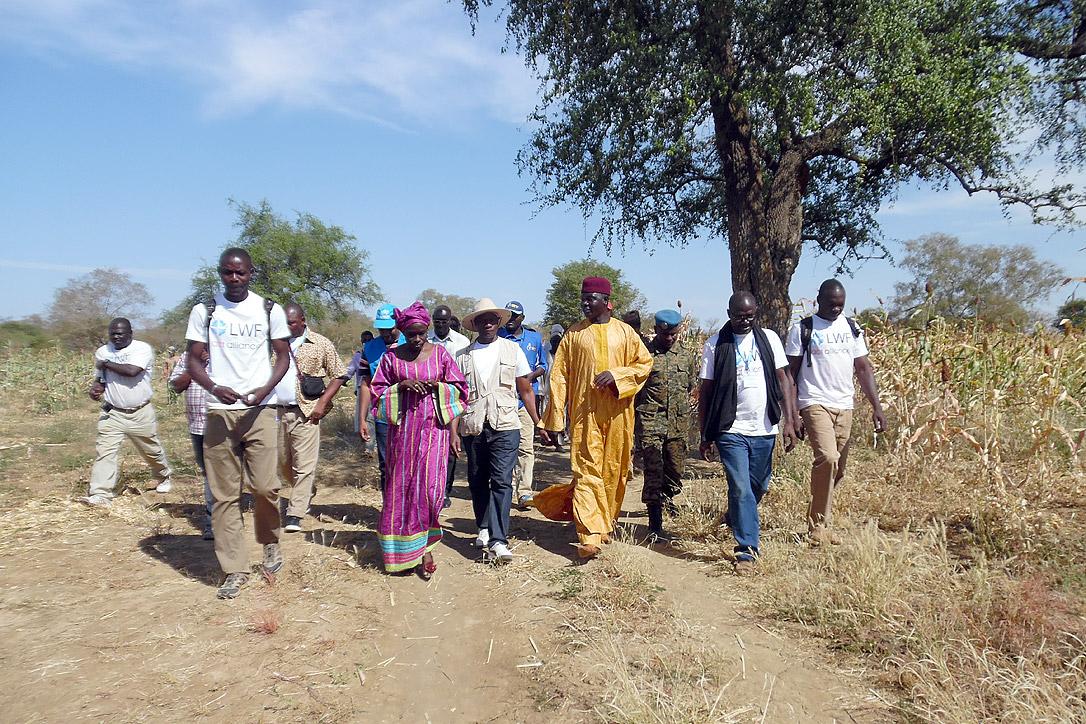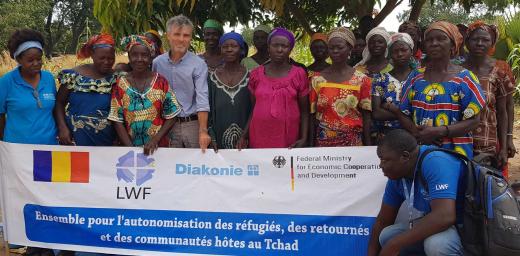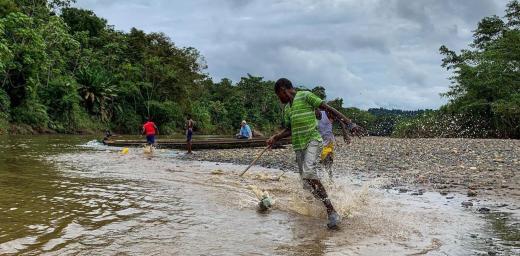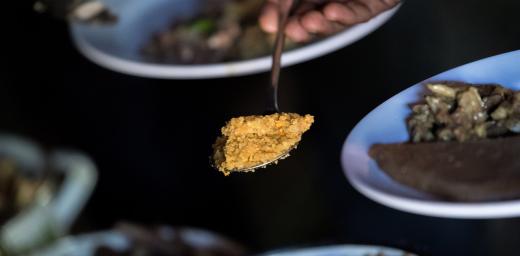Chad: Livelihoods for Refugees and Host Communities

Staff, beneficiaries and visitors visiting project fields in Kimiti department. Photo: LWF Chad
First Harvest for Project “Seeds for Solutions”
(LWI) – Wreaths of sesame, sorghum and peanut plants are the first tangible results of the project “Seeds for Solutions” implemented by The Lutheran World Federation (LWF) and UNHCR in Kimiti department, Chad. In November, humanitarian workers and beneficiaries were launching the first harvest of the program which aims to develop livelihoods for refugees and host communities.
Over a period of three years, the project is supposed to empower 17,800 households with a total of 5,528 ha of land. In addition to agricultural activities, the project has components like animal production, peaceful cohabitation, income generation and local capacity building.
To get there, the LWF began with 547 ha in villages where refugees live in host communities. Mixed groups of refugees and host communities organized an area to be planted with rainfed (sorghum, peanuts and sesame) and flood recession crops (sorghum) in the villages of Kachakacha, Kichena, Sanour, Jabal, Jabal Diari, Abour, Goz beida and Kerfi.
The groups of refugees and host communities received seeds, tractors and other service tools. 992 refugees and people from host communities were involved in tending the fields. The harvest was led by a group of women who demonstrated how to harvest the ears of sorghum and then handed the sickle to the UNHCR Representative Ms Aminata Gueye who started the harvesting campaign.
“It is vital to look for endogenous solutions” Ms Aminata Gueye says. “External assistance would come only to complete them”. For the project LWF is partnering with local authorities, who have allocated a total of 2,500 ha of land for the project.
According to the UNHCR Representative, the project has not only economic but also social aims. It preserves families as they are. “It's not uncommon to hear children tell their parents in the camp: ‘what do you actually do for us?’, because it's the NGOs that nourish and support us” she said. "Our project gives these parents the means to take care of their families’ needs, thereby ensuring harmony in families. It is appropriate for parents to have activities which give them the livelihood to support their family.” The three year project period may be extended.
Chad has experienced chronic instability since its independence in 1960 and was heavily affected by conflicts in neighboring countries like Sudan, the Central African Republic, Libya and more recently Nigeria. The country is often affected by droughts and floods, with close to 64 percent of the population living in poverty. An estimated 2.4 million people are food insecure.
The LWF works alongside refugees and host communities to help meet urgent and long-term priorities. This includes the distribution of food and household items to refugees, but also empowering communities to improve their livelihoods through vocational training and agricultural support.





